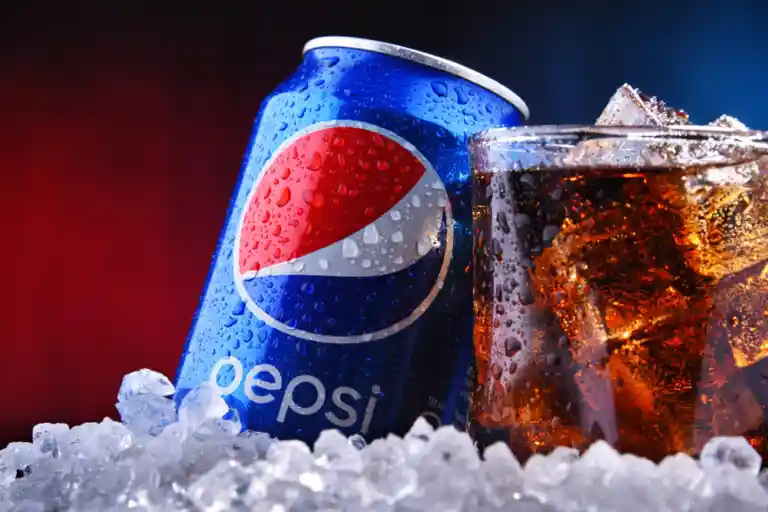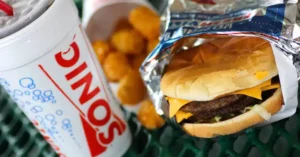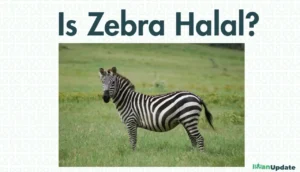Is Pepsi Halal? A Complete Analysis of Ingredients

Pepsi is one of the most recognizable soft drinks in the world, enjoyed by people from various backgrounds. For Muslims, knowing whether a product aligns with Islamic dietary laws is essential, especially as more people seek clarity around what is halal (permissible) and haram (forbidden).
With growing awareness about halal diets, consumers are scrutinizing products to make informed decisions.
This article offers a comprehensive analysis of Pepsi’s ingredients, production processes, and whether it meets the requirements of Islamic dietary laws. Whether you’re a Muslim seeking guidance or someone interested in the nuances of halal certification, this post will give you the insights you need.
Is Pepsi Halal?
Yes, Pepsi is halal friendly. Pepsi’s ingredients and production processes align with Islamic dietary guidelines, making it permissible to consume. The product is vegan-friendly and free from alcohol or animal derivatives. However, Pepsi doesn’t have halal certification.
Understanding Pepsi’s Ingredients: Are They Halal?
Pepsi contains several standard ingredients found in many carbonated beverages. Each of these ingredients needs to be carefully examined to confirm their permissibility in Islam. Below is a breakdown of Pepsi’s ingredients with specific attention to their halal status.
1. Carbonated Water
Carbonated water is a mix of purified water and carbon dioxide gas to give the drink its fizzy texture. As water is inherently pure and halal, there are no issues with its consumption. The carbonation process does not involve alcohol or any animal derivatives, making it completely permissible.
2. High Fructose Corn Syrup (HFCS)
High fructose corn syrup is a sweetener derived from corn starch, commonly used in soft drinks. HFCS is a fully halal ingredient because it originates from corn, a plant-based source.
Additionally, no alcohol or haram substances are used in its production. It plays the same role as sugar, providing sweetness without altering the permissibility of the product.
3. Caramel Color (E150d)
Caramel color, used to give Pepsi its dark hue, is created by heating sugars. It is important to clarify that caramel color differs from traditional caramel, which might involve dairy products. The caramel color used in Pepsi is purely plant-based and produced through industrial processes without animal derivatives, making it halal.
4. Phosphoric Acid
Phosphoric acid adds tanginess to Pepsi. Although phosphorus can be found in animal bones, the phosphoric acid used in Pepsi is synthesized chemically. This synthetic process ensures that the ingredient remains halal and free from any impurities or animal involvement.
READ ALSO: Is Ricotta Cheese Halal? Everything You Need to Know
Other Ingredients: Natural Flavors, Caffeine, Citric Acid, and Sugar
1. Natural Flavors
Natural flavors are often a point of concern for halal consumers, as they can sometimes contain animal-derived components. However, PepsiCo has confirmed that its products are vegan, which assures that the flavors used are free from any animal sources. This makes the natural flavors in Pepsi permissible under Islamic law.
2. Caffeine
Caffeine is an energy-boosting compound commonly found in coffee and soft drinks. In Pepsi, the caffeine is typically sourced from coffee beans and synthetically processed in factories, mostly in China. Since caffeine extraction does not involve haram substances, it is halal.
3. Citric Acid
Citric acid, used as a preservative and flavor enhancer, is usually produced through a fermentation process involving black mold and sugar. Although mold may sound concerning, the production method is safe, and the sugar used in the process is generally from halal sources, making citric acid permissible.
4. Sugar
Sugar is widely accepted as halal, unless it is processed using bone char, which is uncommon in industrial sugar production today. The sugar in Pepsi is plant-based, posing no concern for Muslims regarding its permissibility.

Does Pepsi Meet Halal Guidelines?
In Islamic dietary law, the general principle is that all foods and drinks are permissible unless there is explicit evidence proving they are haram. The Quran states:
“It is He who created for you all of that which is on the earth…”
— Surah Al-Baqarah (2:29)
Based on this principle, Pepsi’s ingredients are permissible, as there are no haram elements like alcohol or animal-derived components. Additionally, PepsiCo has clarified that the product is suitable for vegan consumers, which further reassures Muslims concerned about hidden animal products.
However, one important aspect of Islamic law is the principle of harm. If a food or drink is proven to cause harm, it may be considered haram or only permissible in limited quantities.
While overconsumption of sugary drinks like Pepsi may contribute to health issues such as obesity or diabetes, small amounts consumed responsibly would not be deemed haram. Islamic scholars generally agree that items harmful in excess are permissible in moderation if the harm is minimal.
Is Pepsi Halal Certified?
Despite its compliance with halal dietary guidelines, Pepsi is not officially halal-certified. PepsiCo has stated that it does not manufacture products specifically for halal diets and does not actively seek halal certification from ingredient suppliers. According to PepsiCo’s FAQ:
“We don’t manufacture products specifically for such diets, nor do we actively seek certification from suppliers regarding halal or kosher suitability.”
The lack of halal certification might be a concern for some Muslim consumers who prefer to purchase products with official certification. Halal certification involves a thorough review of the ingredients, production process, and facility conditions to ensure compliance with Islamic guidelines.
Without this certification, some consumers may opt for alternative beverages that carry recognized halal labels.
It is essential to note that the absence of certification does not automatically make Pepsi haram. Some consumers rely on ingredient transparency, while others prefer the added assurance of a recognized halal certifying body. The choice ultimately lies with the individual and their level of comfort with the available information.
FAQs: Common Questions About Pepsi’s Halal Status
1. Is Pepsi Vegan?
Yes, Pepsi is vegan as it does not contain any animal-derived ingredients. This also supports its halal status for Muslim consumers concerned about animal content.
2. Does Pepsi Contain Alcohol?
No, Pepsi does not contain alcohol or any alcohol-based flavoring. This makes it suitable for Muslims following a halal diet.
3. Is Pepsi Safe for Muslims to Consume?
Yes, Pepsi is safe for Muslims to consume based on its ingredient list. However, some Muslims may choose to avoid it due to the absence of formal halal certification.
4. Why Doesn’t Pepsi Have Halal Certification?
PepsiCo does not specifically produce products for halal diets and has not sought halal certification. They rely on ingredient transparency, but some consumers prefer certified alternatives for assurance.






